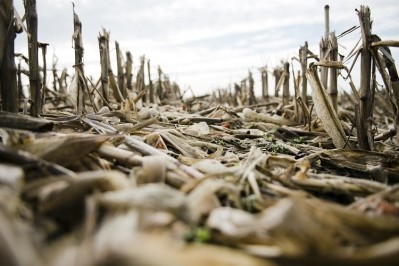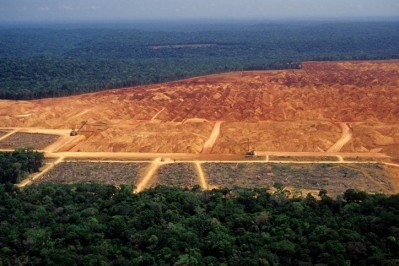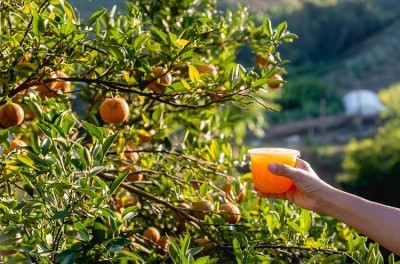What makes Europe’s proposed deforestation law the ‘most efficient on the world stage’?
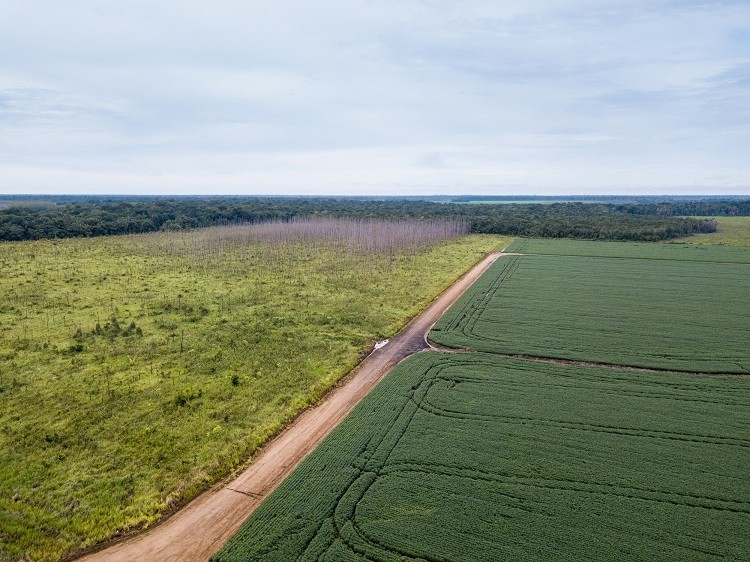
Deforestation is the practice of converting forest to other land uses, such as agriculture and infrastructure. According to the FAO, more than half of forest loss is due to the conversion of forest into cropland, and almost 40% can be attributed to livestock grazing.
In an effort to curb deforestation and forest degradation worldwide, legislators are taking action. The EU, US, and UK are exploring different forms of due diligence legislation that would make businesses liable for environmental violations within their supply chains.
The European Commission is convinced that its proposed due diligence legislation, currently undergoing co-legislative procedures, is the ‘most efficient’ to have been put on the table, globally. What makes the Commission’s proposal unique? And when is the earliest the proposed law could come into effect?
‘There is no going back’
“Deforestation and forest degradation are main drivers of global warming and biodiversity loss, which are two major environmental threats the world is facing,” explained Diego Torres, international relations officer at the European Commission’s Directorate-General for Environment (DG ENV) – the department responsible for developing the proposal.
The Commission views legislation as a major part of the solution. Ultimately, voluntary approaches haven’t delivered on forest protection commitments, suggested Torres at the Round Table on Responsible Soy (RTRS) annual conference in Germany last week. “From my perspective, it’s very good news that the UK and EU are both taking legislative action.”
At the same time, environmental consciousness is here to stay. There is ‘no going back’, stressed Torres: “More and more attention is being paid to deforestation and forest degradation. “We see [more attention] from the media… and from researchers focusing on the root causes of deforestation, [as well as] how to address them. We see attention from NGOs, industry, and policymakers.”
Policymakers will only become increasingly concerned about deforestation, and companies able to deal with more stringent requirements on traceability ‘will be the winners’ in this new phase of regulation, he continued.
Tackling illegal vs all deforestation
Under the Commission’s proposal, companies selling products coming from cattle, poultry, cocoa, coffee, palm oil, soy, and maize, amongst others, must verify they were not produced on deforested or degraded land. Companies would also be required to prove they were produced while respecting human rights provisions and indigenous people.
These requirements are similar to those stipulated by the UK’s Environment Act, which was passed around this time last year. So what is it that makes the Commission’s proposal, according to Torres, the ‘most efficient’?
One key difference between the EU and UK proposals lies in the type of deforestation outlawed. In the UK’s Environment Act, illegal deforestation is the primary focus. “For larger UK businesses who operate in the UK and make use of forest-risk commodities, it makes it illegal for them to do so if they come from land that has been illegally [converted to agricultural land],” explained Ali Siddiqui, senior adviser at the UK’s Department for Environment, Food & Rural Affairs (DEFRA) at the RTRS event.
These companies are required to carry out due diligence throughout the supply chain, with transparency central to the regulation, he stressed. Passing such a regulation marks a ‘step-change’ in the UK, we were told. “We wanted to be the first generation to leave the environment in a better state than we found it.”
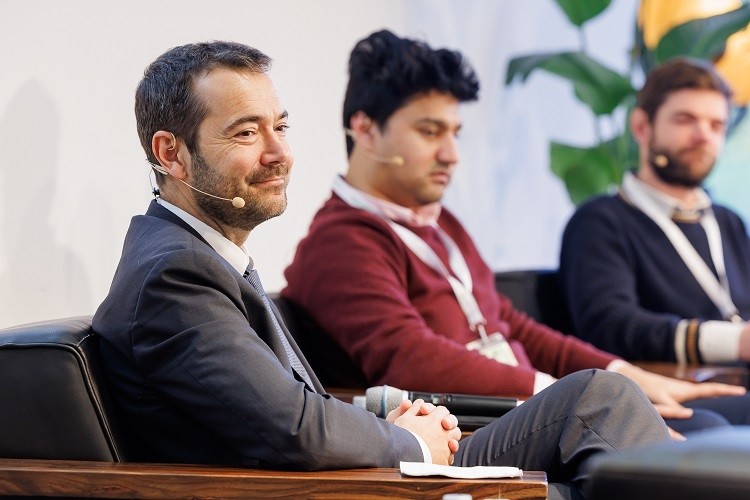
In the proposed EU regulation, on the other hand, the aim is for no commodity associated with deforestation – whether legal or illegal – to enter European supply chains.
“We want to address deforestation and forest degradation regardless of whether it is legal or illegal in the country of production,” explained Torres. “This is a major shift in terms of our policymaking… and we have done this for several reasons, [including] that a lot of deforestation going on in producing countries is legal, or is legalised after a certain number of years – as has happened many times.”
In Brazil, for example, those responsible for illegal deforestation prior to mid-2008 have been since granted an amnesty, meaning that cattle ranching and crop cultivation can continue in those areas without any requirements to reforest the land, or pay fines to Brazil’s environmental enforcement agency, IBAMA.
The EU proposal, if enforced, would apply to deforestation ‘across the board’, no matter the size of the company nor whether the deforestation was legal or illegal, Torres reiterated.
Enforcement and benchmarking
There are at least two more reasons Torres backs the EU proposal as the more efficient policy. The first is its approach to enforcement.
According to the Commission’s proposal, companies will be monitored and held accountable by enforcing authorities if they fail to comply with the requirements of the regulation. Companies will need to submit a statement to a European information system confirming that they have successfully exercised due diligence and that the products they place on the market are compliant with EU rules
“From our implementation experience with the EU Timber Regulation, we know from enforcing authorities that exercising due diligence – which is only based on the legality of countries – is sometimes cumbersome and inefficient. So we want to open a new window of opportunity to facilitate enforcement,” explained Torres.
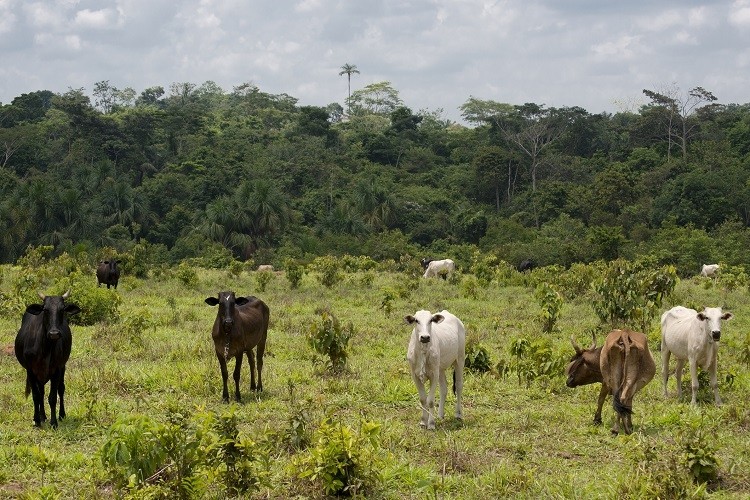
Another feature that sets the EU proposal apart is its benchmarking system, whereby the Commission would classify countries and regions as low-, standard-, or high-risk, according to the commodity in question. With this system, the Commission aims to create incentives for countries to ‘step up’ protection of their forests, the international relations officer explained.
How will the benchmarking system incentive countries to act? Being categorised as ‘low-risk’ creates an opportunity, said Torres. “Companies sourcing from countries or regions categorised as low-risk will be obliged to exercise a simplified due diligence, meaning they will still be required to collect information, but they will not be required to assess and mitigate risks.
“We think, therefore, that it is a powerful incentive for countries to prevent or curb deforestation and step-up protection of their forests.”
EU regulation could be enforced as early as 2024
When will Europe’s deforestation due diligence legislation come into play?
The DG ENV’s proposal was adopted by the Commission in November 2021, and this year saw both the Council and Parliament approve the resolutions with suggested amendments.
The proposal is undergoing a legislation process between the Commission, the Council of the European Union, and the European Parliament, known as Trilogues. The aim is to agree on a final text.
“The three institutions, it’s important to say, agree on the core features of the proposal, including legal and illegal deforestation, traceability, and benchmarking,” revealed Torres. “But of course there are some discrepancies in terms of which commodities shall be included, and whether the regulation should go beyond forest to protect other agroecosystems.”
All institutions have expressed a ‘willingness’ to reach a political agreement this year, which could occur as early as next week: the third political trilogue is due to take place 5 December 2022.
If a political agreement is achieved next week, regulation could enter into force by May/June 2023. Large companies would then need to comply by end of 2024, and smaller companies by mid-2025. This, reiterated Torres, would be the ‘best-case scenario’.
